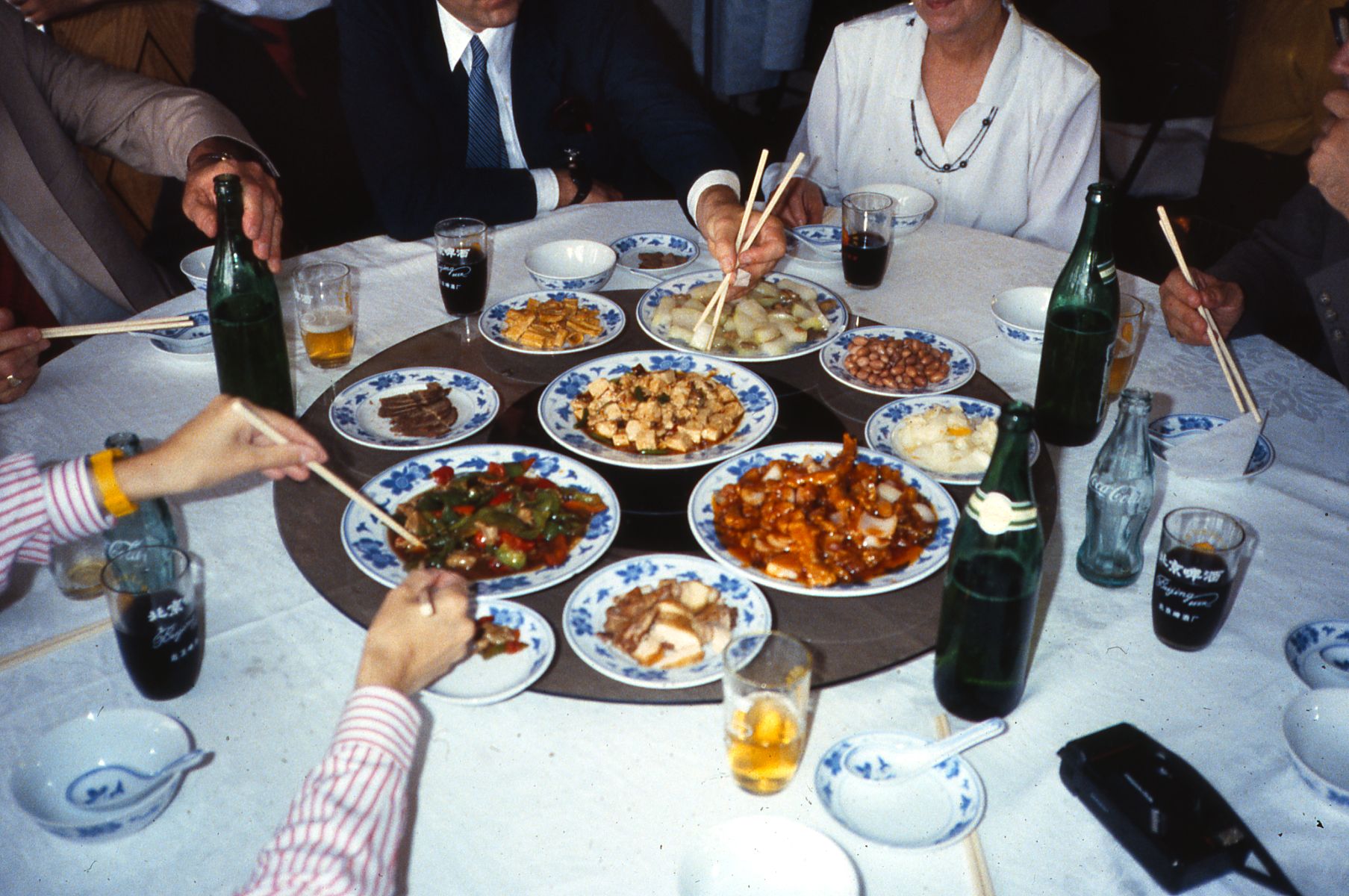At Shanghai Plus, executive chef Edmond Ip is reinventing Shanghainese cuisine with a Cantonese touch. The Hong Kong native talks to #legend
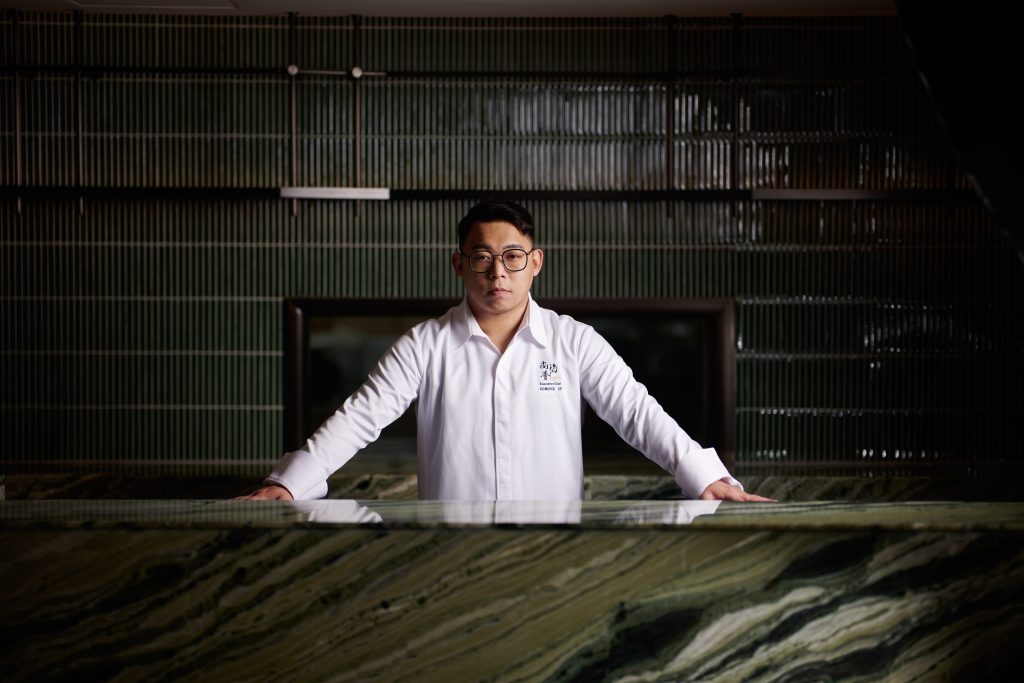
There’s no shortage of Shanghainese restaurants in Hong Kong. But Shanghai Plus, located in the newly revitalised Shui On Centre in Wanchai, stands out on the strength of its executive chef, Edmond Ip.
One of the industry’s youngest trailblazers of Chinese cuisine in the city, Ip never intended to cook. “Back in the day, there wasn’t much appeal to working in the F&B industry. Working hours are long – you would have to be on duty during festivals and holidays while family and friends could go celebrate. But it didn’t require much educational qualifications, and since I didn’t do well in school, I joined the industry,” he explains.
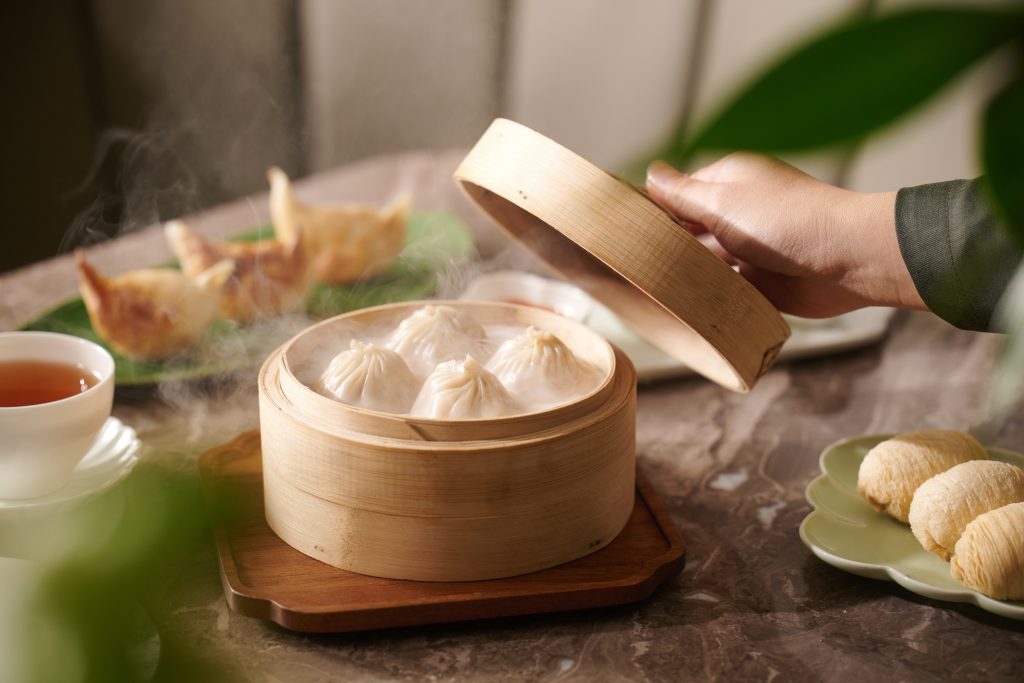
“In the first few years of my career, I didn’t take it very seriously and was often late to work. Until this one time, I remember all my senior colleagues were all off duty, and one diner requested an additional order, so I decided to give it a try. I received praise from the customer, and the kitchen lead, who had been quietly observing me, also recognised my efforts. I’ve always felt unacknowledged because I’ve never excelled in my academics, so receiving praise for this one small dish was a turning point for me. I realised I had found my direction, and from that day on I dedicated myself to learning, developing my skills, reading cooking books (this was before the Internet was widespread), participating in competitions and meeting friends who shared the same passion for food.”
Now the Hong Kong native is bringing his over 20 years of expertise, honed in prestigious Cantonese kitchens across Hong Kong, including Wing and Woo Cheong Tea House, to turn a cuisine defined by rich, heavy flavours and sauces into something lighter. The extensive 77-item menu encompasses both authentic Shanghainese classics (think sweet-and-sour mandarin fish, xiaolongbao and braised pork belly) and innovative interpretations intertwined with Cantonese sensibilities, all sans MSG and additives.
After 20-plus years in Cantonese kitchens, why did you decide to try your hand at Shanghainese cuisine? Were you nervous about this move?
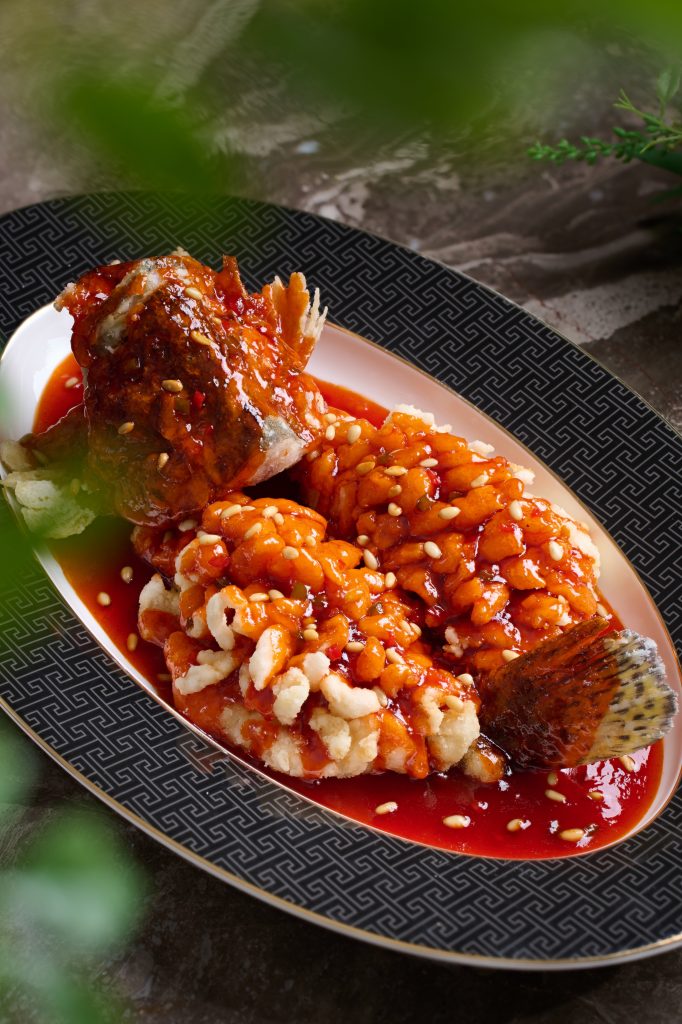
First, I would like to thank the Langham Hospitality Group for their trust and support. The team wanted to open a Shanghainese restaurant, and I personally believe that both Cantonese and Shanghainese cuisines are forms of Chinese cuisine, so there isn’t much difference for me. Therefore, I accepted the challenge!
I wasn’t worried at all because I’m a professional chef with all the essential knowledge and skills. Although I have mainly worked with Cantonese cuisine, both Shanghainese and Cantonese cuisines are part of Chinese cuisine, so once you understand one, you understand the other.
What are the similarities and differences between Shanghainese and Cantonese cooking?

The two cuisines are differentiated by their cookingv styles, flavours and ingredients. Shanghainese cuisine emphasises rich sauces and a sweet-savoury flavour. Cantonese cuisine, on the other hand, tends to be lighter, highlighting the original taste and freshness of the ingredients by using the primary cooking methods of steaming, blanching or braising. The similarity is that both cuisines are Chinese, pursuing flavours and warmth.
How would you describe your culinary philosophy at Shanghai Plus?

The dining philosophy and uniqueness of Shanghai Plus lies in incorporating traditional Shanghai dishes with elements from Cantonese cuisine – being innovative while respecting the tradition. Of course, not every dish includes Cantonese influences – we also have authentic Shanghainese dishes. I’m not trying to create a new-style Shanghainese restaurant or fusion cuisine – I just want to serve good, classic Shanghainese dishes and show my guests that a Cantonese chef can also prepare delicious Shanghainese cuisine.
How do you find balance between the two cuisines?
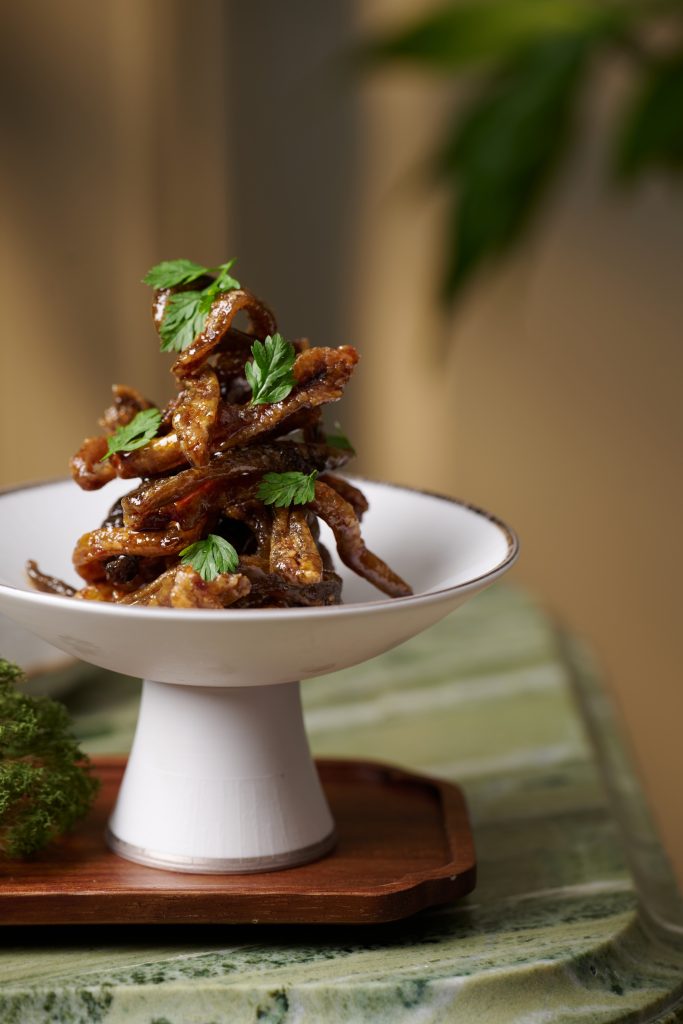
Take as an example our fried pork ribs with aged dried tangerine peel in balsamic vinegar sauce. I use fresh pork belly with a good balance of fat and lean meat, and replace traditional Zhenjiang vinegar and white sugar with Italian balsamic vinegar and Okinawan brown sugar. I then add a Cantonese touch by incorporating dried tangerine peel, which lends a unique fragrance. I’m respecting tradition but slightly adjusting the seasonings – vinegar remains vinegar, and sugar remains sugar.
What have been some of the challenges you’ve encountered at Shanghai Plus, and how have you overcome them?
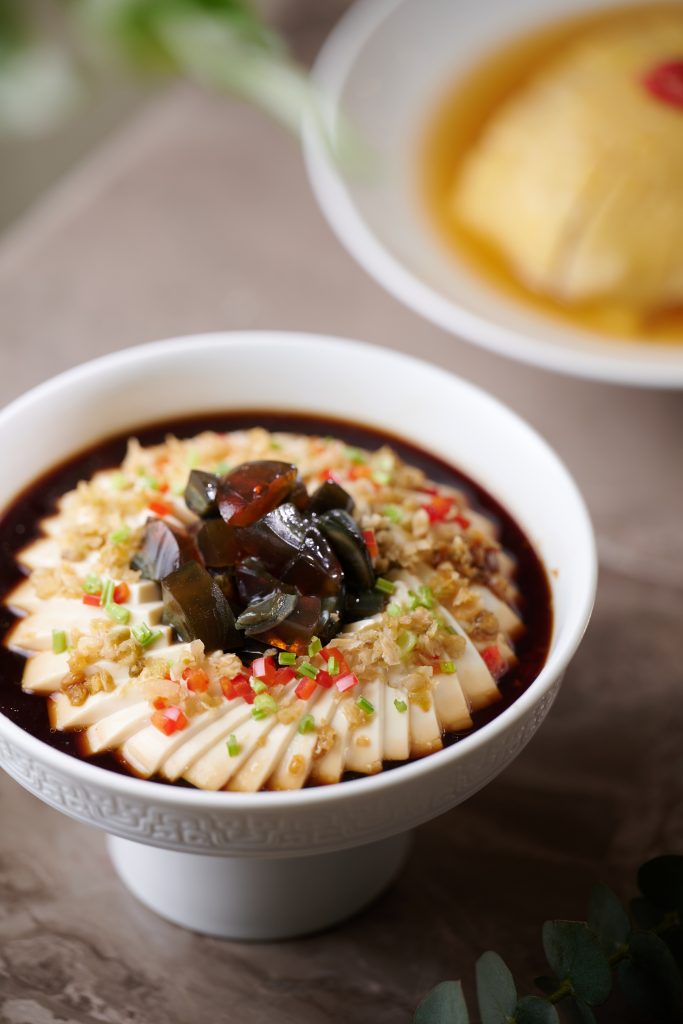
I faced a lot of skepticism, with comments like, ‘Can a Cantonese chef cook Shanghainese cuisine? Do they really know how?’ But I also received encouragement from many seniors in this industry. Ultimately, it’s about the willingness to learn – attitude determines the outcome. As a chef, you need to use your expertise to handle different ingredients, understand the characteristics of each cuisine and use your experience to create a personal style. Talking about ingredients, while developing the menu wasn’t difficult, finding the right ingredient suppliers and ensuring quality ingredients was – I faced numerous challenges.
What would be some of the signatures or your personal favourites?
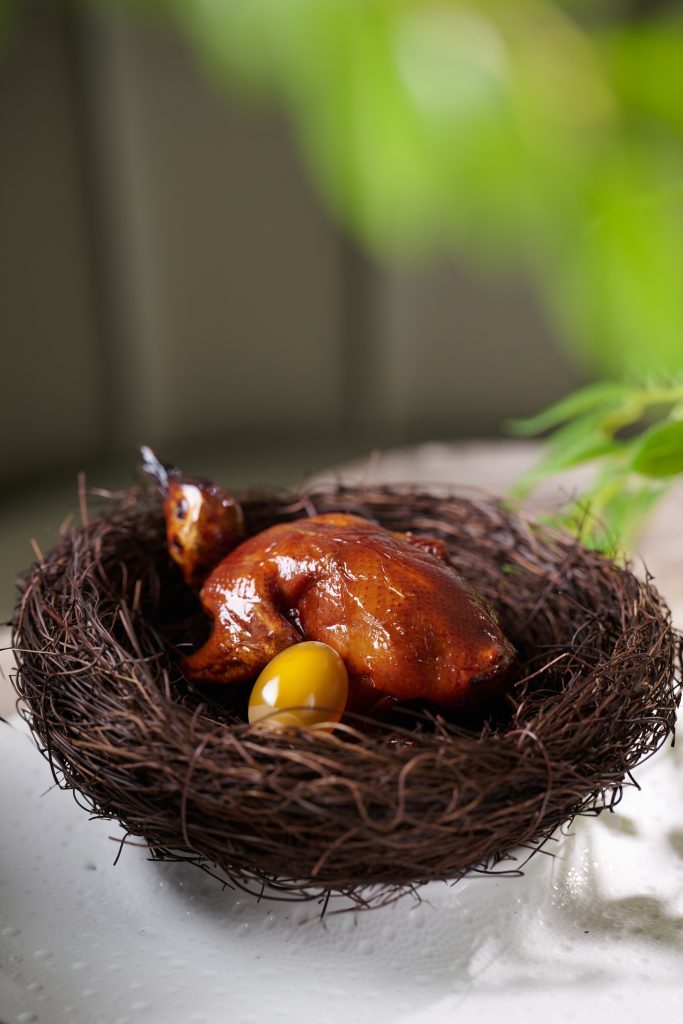
I wouldn’t say I have a signature dish, but a dish that is quite popular among customers is the fried pork ribs with aged dried tangerine peel in balsamic vinegar sauce. Personally, I love crispy pigeon with smoked pigeon egg.
And no MSG, flavourings and additives are used at Shanghai Plus?
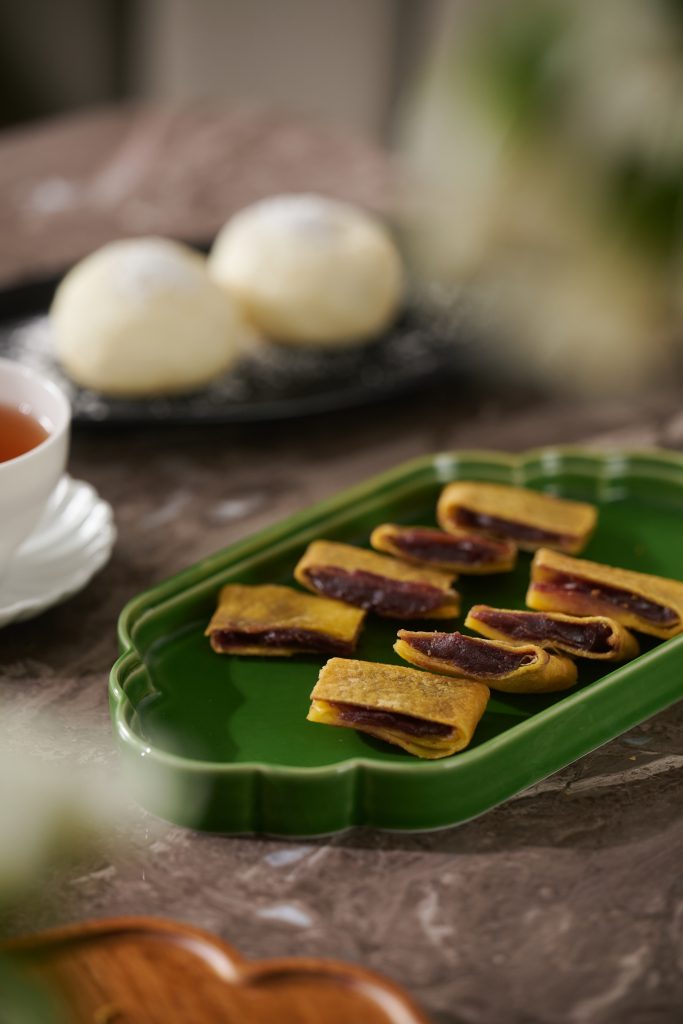
Many high-end restaurants and hotels no longer use MSG, but many cuisines and restaurants still do. The biggest challenge is getting my culinary team who used to handle Shanghainese cuisine to adapt to cooking without MSG, as many recipes still include it. We constantly try and improve to create the Shanghai Plus of today.
What’s next for you and Shanghai Plus?
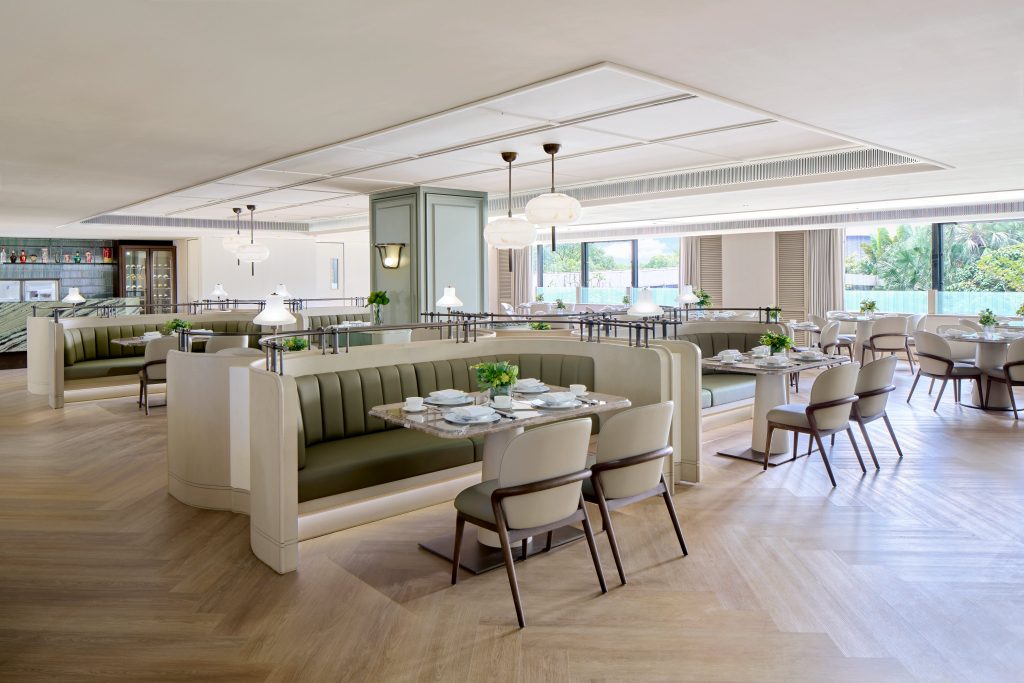
My plan with the company is to continue producing high-quality dishes. I aim to ensure that every colleague can consistently maintain a stable level of cooking. I hope that in the near future when customers think of Shanghainese cuisine, they will think of us. I also want to incorporate more sustainable local ingredients to reduce carbon emissions!




